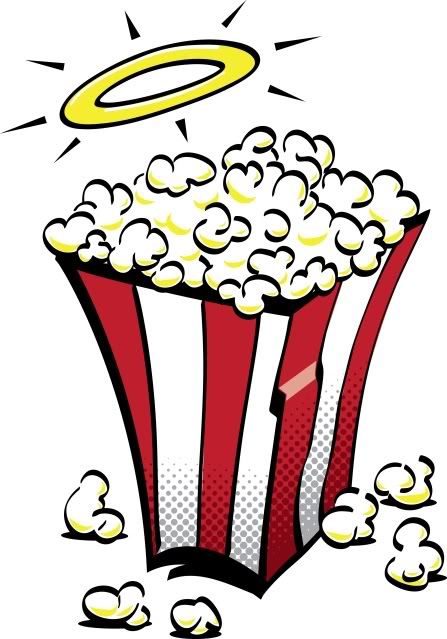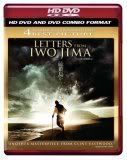
September 2, 2008
Letters From Iwo Jima (2006)
Should I see it?
Yes.
Yes.
Short Review: This films cuts both ways, on one hand it is a brilliant grunt level look at war, on the other hand it is a kick in the soft compliments to the American military.
There are two ways to look at this film. One is to take this film as a standalone piece exploring the psyche of the Japanese side of Iwo Jima. The other view on this is to take this film in context and as a companion piece to director Clint Eastwood’s earlier and far inferior film about Iwo Jima, Flags of Our Fathers.
Taking this on its own merits, it is a great film. The story is focused, and we are given a fascinating look into the workings of the Japanese army. As the conditions on the ground begin to crumble as the American forces press on, the natural collapse of morale and discipline are shown in vivid detail. Eastwood does well managing this chaotic storyline of various characters meeting their imminent doom. Buttressed by screenwriter Iris Yamashita’s talent for character, Eastwood creates a stark portrait of men faced with internal and external existential wars to fight.
At the center of this film are two moving performances. The real lead in this piece is Kazunari Ninomiya. Ninomiya’s performance as Saigo, a poor baker who is torn from his love and conscripted into the army, carries the film. He is a critical figure in the film since he is the only character most people will be able to fully connect to. He is somewhat sarcastic and lacking the compliance or commitment to his army’s call. He is a common man yanked into the maelstrom of the Pacific theater. The other main focus of the piece is General Tadamichi Kuribayashi, portrayed by Ken Watanabe (The Last Samurai). Watanabe brings his natural charisma to the role and fills the shoes of a general quite well. He is a thoughtful leader who was educated in America. His leadership mismatches the brutal discipline of his underlings. This rift creates much of the film's early conflicts from which the characters are allowed to express themselves before the fighting begins. Kuribayashi is likewise a pawn and cast into the pit along with his men. The difference with his character is that he knows its coming. He goes into the fight with the Americans fully aware he cannot win.
Eastwood patently moves through subplots and minor characters to keep hammering home the uselessness of the venture of making war. From the upper echelon to the lowest grunt, we are shown that the wages of war are deep and, apparently in Eastwood’s eyes, not worth it. The full impact of the piece is muddled however given the inability for the characters to fully connect. In all of their effort to bring the expanse of the battle to the screen, Eastwood and Yamashita move around too much and too quickly. This battle went on for thirty-five days. Because of the hurried script it seems like the defeat of the Japanese came quick. The Americans land, there’s a couple of scuffles and the Japanese begin killing themselves. There is absolutely no feel to the timeframe involved. This breaks down the drama faced by these men, and saps some of the energy from the piece. When the final climatic moment occurs the lack of perspective comes to bear. While it is certain these men faced hard and violent times, the full scope of their endurance is missing.
Also missing from this piece is an honest look at who these guys were as soldiers and what they were capable of given their worldview. In this film it is the Americans who are shown to be brutish and cruel. While there is one individual Japanese officer who beats his men, the others are shown to be regular guys. While, yes, the Japanese soldiers we're all fully committed to the cause, it is important to remember that many were and that the Japanese army fully capable of horrible atrocities on the level of the Nazis. One has to look at Eastwood’s portrait and ask would this still be acceptable if he was showing us a sympathetic side to German forces? The Axis in WWII were strongly evil forces and Eastwood casually dismisses this in his work.
Overall, taken as a standalone piece this is successful and worth seeing at least once. Eastwood’s tendency to get long winded works in this piece as it is balanced out by Yamashita’s episodic writing. For those who love war film, this is a must see production. For those looking for an escape into comfortable entertainment, this may be a little too heady.
Cautions: Obviously, given that this is a frank look at war, this is a very violent film. Only a moron would go in thinking it would be otherwise.
So then, if you're a moron - be careful.
Related Reviews:
Clint Eastwood movies
Million Dollar Baby (2004)
Flags of Our Fathers (2006)
Other Critic's Reviews:
FilmCritic.com
Dear Cinema
Labels: Clint Eastwood, film, Kazunari Ninomiya, Ken Watanabe, movie review, war, World War II
Share
Previous Posts




Good News Film Reviews LLC 2004-2010 - used with permission
Images, video and titles are the property of their respective copyright holders. Good News Film Reviews LLC claims no ownership or connection to them.
The views expressed on this site are not the opinion of any advertiser or external entity.
While we take care to only link to responsible entities, Good News Film Reviews LLC takes no responsibility for the content linked from this site. There are sharks in the waters. Surf at your own risk.
The Template is generated via PsycHo and is Licensed.






















0 Comments:
Post a Comment
<< Home